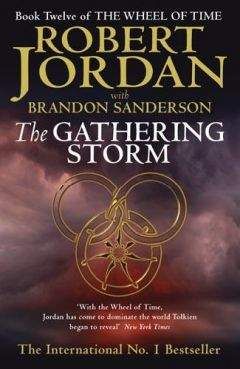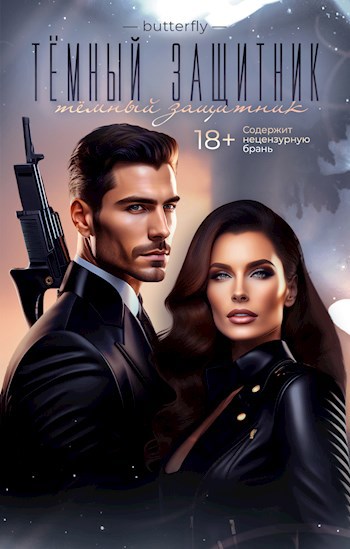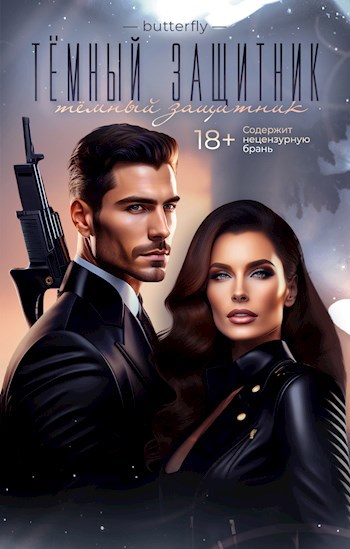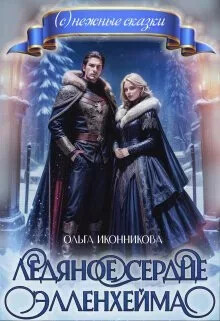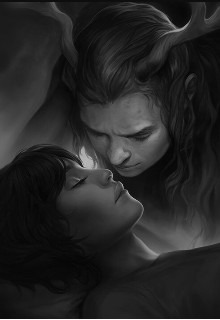Harry Turtledove - Herbig-Haro

Помощь проекту
Herbig-Haro читать книгу онлайн
The worst moment came as the outer airlock door swung open. If one of the aliens panicked or got trigger-happy, B'kila would have five missing scouts to brief the next pilot about. Some of the aliens yelled when Chang came into sight. "Officers, it would appear," the computer said into a receiver implanted behind his ear. "Notice the stripes on their helmets." Seeing one of them knock a soldier's gun aside, Chang tentatively identified his first phrase in the alien language: "Hold your fire!''
For a moment he thought his weight was shifting, then realized it was the opposite: like a seaman rolling on land, he had become so used to Praise of Folly's pulsing generator that steady gravity felt odd. After the ship's mechanically pure air, the unidentifiable spicy smells of growing things hit him like wine. He did not even mind the diesel stink mixed with them, though it made him cough. He paced off a circle of about ten meters around Praise of Folly, made pushing motions to show that the troopers should keep their distance. When a squad arrogantly strode inside his perimeter, Praise of Folly let go with an ear-splitting siren screech. Machine guns swiveled to bear on the aliens. They scrambled back.
Chang smiled to himself. It would not hurt to have the aliens think the ship still manned. In a way, it was.
One of the nonhumans stepped out of a small group and came forward. ostentatiously stopping at the boundary line Chang had set. The scout pilot caught his musky body odor; who could say what he smelled like to the other?
The alien—an officer of some rank, by the five stripes on his helmet—pointed to himself and said,
"Zan." He pointed at one of the soldiers behind him. "Zan." Another. "Zan." A wave that encompassed a dozen or more. "Zanat."
The language lesson went from there. Chang soon decided that the Zanat officer was a trained contact specialist. He went about his business with a calm competence that implied he had undertaken such tasks many times before. Skillfully he gave Chang both vocabulary and grammatical structure. The latter made the scout pilot want to groan, for the Zanat language was highly synthetic. Chang wished for the simpler analytic structure of Low Mandarin or English. but he had been on enough worlds that spoke Russian-based tongues to cope. And what he learned, he did not forget. The contact officer's name was Liosh; that, at least, was as close as Chang could come to it. His own name sounded like "Razmuzjang" in the other's mouth. Liosh undid his belt, tugged off his boots, put his helmet on the tarmac. When completely naked, he pointed to himself, then to Praise of Folly's entry ladder. His mobile ears twitched in what Chang had already come to recognize as the equivalent of a raised eyebrow. "Go there?"
"No." The scout pilot could not make his refusal polite.
Liosh gave a very human shrug. He pointed to one of the blocky structures several hundred meters away. "Go there, then?"
The scout pilot decided to risk it. He has several days' worth of food concentrates in the knapsack on his back, as well as vitamins to supplement alien food and reagents to test for the more common sorts of indigestible proteins and lipids. If the Zanat intended killing him, they had easier ways than poisoning. He spoke into his handset, telling Praise of Folly what he was about and adding, "If I'm lost, get the data home if you can: override command. And another override: destroy yourself to avoid capture."
"Acknowledged," the computer said sulkily, speaking, as Chang had ordered, through both the receiver behind his ear and the handset. He wanted to make sure Liosh understood what that was; the Zanat model was a back-carried unit bigger than his knapsack, and looked to be much heavier. Liosh, he suspected, was smart enough to draw his own conclusions from that. After several tries, he conveyed to the Zanat that hell would break loose if he was not allowed to communicate with his ship regularly, or if they tried to seize it while he was gone. Limb agreed so promptly that Chang was sure the aliens would take their chances when the time came. He shrugged; he had known that already.
Troopers fell in around him and Liosh as they walked toward the port building. When they were nearly there, Chang heard a spatter of small-arms fire: single shots, followed by the harsh tac-tac-tac of automatic Weapons.
He whirled. but the gunshots had nothing to do with Praise of Folly. In fact, several of the armored vehicles were rumbling away from his ship toward the far edge of the spaceport. "What's going on there?" he asked the computer.
"Fighting." Sophisticated as it was, Praise of Folly could be annoyingly literal, especially just after an override command. A moment later, though, it added some worthwhile information: "The attackers stay well hidden, but do not seem to be Zanat."
"Interesting," Chang said. He turned to Liosh, used the only interrogative he had. "What?" The contact officer spread his four-lingered hands in a gesture many races used. "Slayor," he said.
"People of the world." He approached that several ways, until he saw that Chang understood. He did not have a high opinion of the Slayor. Pointing at a starship:
"Slayor—no." At a fighting vehicle: "Slayor—no."
Local barbarians, the scout pilot translated mentally. Which meant that this was not the Zanat homeworld. He had not really thought it was, but the implications jarred him all the same. The Zanat were plainly here as conquerors, not traders—which argued for an expansivc. unified imperialism such as the dead Confederacy had known.
And if they found fragmented humanity unprepared . . . Their technology was not up to the best Terran standards, but not much in human space was either, any more. Chang wanted to run and hide. Instead he followed Liosh into the port building. The door closed behind them with a thud that told of metal reinforcement. Liosh led him up a couple of flights of stairs and through a tangled set of corridors to a suite of rooms from which troopers were hauling desks, cabinets, and other office furniture. Others were standing by with gear that looked as though it had come from their barracks: a big metal footlocker, a table, a cot amazingly like Loki standard issue, and several peculiar free-standing contraptions that puzzled Clang until he realized they had to be what a race with back-acting knees used for chairs. Liosh pointed at the gear and the rooms. "Yours," he said. Chang nodded, a gesture with which the Zan was already familiar. The scout pilot noted that, as befit a fortress, the windows were mere firing slits. Nor was he surprised to discover a guard-squad outside his door. He had been a prisoner ever since his ship emerged in this system.
He gained fluency in the Zanat language with a speed that won Liosh's respect. The alien contact officer pushed hard; he did not have the advantage of an artificially unfailing memory. but he owned a good one, and the Zanat seemed to need only about half as much sleep as Terrans. He found Clang's dormancy amusing.
The scout pilot came to like him, not least because he did not take himself too seriously. For all that, the Zan was a clever interrogator, adept at sliding smoothly from one subject to the next. One secret, though, he did not penetrate: the scout pilot was careful always to speak of the Confederacy in the present tense. He was so perfectly consistent that Liosh never thought to doubt him. Still, it was not an easy time. Liosh extracted a good deal of information. and yielded little in return. Chang started seeing those probing golden eyes, started hearing that guttural voice in his sleep. He dreamed they were trying to talk during a storm. Thunder boomed; lightning seared the sky. When he woke, for a long moment he was unsure he had. The night was pitch-black, but lurid flashes of light came stabbing into his chamber. The crashes that tore the air were louder and more continuous than those from any tempest.
He heard shouts through the turmoil: the harsh yells of the Zanat and different cries, high thin wails that rose and fell in weird ululation. The wails grew ever louder and ever closer. The Zanat had not bothered to disarm him. He belted on his pistol, dashed to the window and looked out. Carbon arc lamps on tall poles spread a hellish blue glare over the spaceport tarmac; the shadows of the figures dashing across it were black and sharp as if cut from dies. Most moved with a sinuous grace the Zanat did not possess.
A machine gun chattered from a gun pit. spitting flame. Running shapes toppled, one after another. A couple, Chang thought. were Zanat. Then the gun stopped—a jammed cartridge? A broken firing pin?
The scout pilot had no way of knowing. Some of the graceful runners leaped into the pit. The machine gun stayed silent.
Crump! Front the great cloud of smoke that shot up. it was a black-powder explosion. primitive but effective. An arc-light support tottered, swayed, fell with a heavy boom. A moment later another lamp was taken out, and a quarter of the field plunged into twilight. The Slayor yowled in triumph. Not all of them toted only their native arms. A burst of half a dozen bullets thudded into the wall near Chang's window. He hurriedly pulled away. That had to be a captured gun.
Another explosion was followed by the iron clang of a starship smashing against concrete. Chang's gut clenched with fear. If Praise of Folly went down under the locals' attack, he was marooned as inevitably as if the Zanat smote her with a nuclear warhead,
The Zanat inside the spaceport buildings had not been taken entirely by surprise. The sentries were alert, and the species as a whole was not so sunk in sleep of nights as Terrans would have been. Alarms yammered. There were shouted orders in the next room, a tinkle of glass as a window was broken out, and a rattle of rifle fire. "That got a couple of the motherless fargs!" a trooper shouted. But the Slayor must have been building their attack in secret for months, maybe years. They were throwing everything they had at the hated invaders from the stars. Somehow they had even hauled one of their clumsy field-pieces to the edge of the spaceport to oppose Zanat artillery. Back at his window. Clang saw the muzzle flash and belch of smoke. A solid shot smacked into the building. The Zanat, though, had built to withstand a lot of that kind of pounding. And when the natives tried to force the stout door through which Chang had entered, they were bloodily repulsed. The Zanat raked their retreat with fire. The scout pilot thought the assault had been wrecked. But it was only a diversion, to draw the enemy's attention while a squad of Slayor set a charge against the far side of the port building, lit a fuse, and fled.
The blast hurled Chang from his feet. He rolled into a tight protective ball. The floor lurched beneath him. The noise was stunning, a blow at the ears.
He staggered upright, dazed, half-deafened. Faintly, as if through roaring water, he heard injured Zanat screaming. The air was thick with the smell of smoke and blood. There were other screams too, of wild excitement. The Slayor were in the building.
The door burst open. Only wan auxiliary lights burned in the hallway. but they sufficed to show Liosh and a pair of soldiers with rifles. The contact officer was limping; someone had slapped a rough bandage on his lower leg.
"Come on!" Liosh barked at the scout pilot. "We'll get you away. We may not hold here, and you're too precious to leave for the savages to butcher."
